Creating a sustainable supply chain
We see our suppliers as key partners in our business. Their success contributes to our success.

We want to ensure that our suppliers meet the same environmental and social standards that we hold ourselves to. Many recent global and regional disruptions have also demonstrated that having a robust and resilient supply chain is crucial to maintaining business continuity. This makes the topic of supply chain sustainability a material one for NRC Group.
Establishing long-term supplier relationships
We approach the management of our supply chain in two ways. Firstly, we actively select suppliers that align with our vision and values. This means they meet our expectations and requirements for health and safety, environmental performance and other relevant factors. Secondly, we seek to build meaningful and long-term relationships with our suppliers. In doing so, we establish trustful working relationships where we can learn and grow successfully together.
Investing in local businesses
The majority of NRC Group’s suppliers are Nordic owned and operated businesses. Our investment in local suppliers goes beyond the products and services they supply us with. We aim to actively engage with our suppliers to deliver environmentally sound solutions. To do this we work in partnership with our suppliers to challenge existing solutions, solve problems and increase knowledge in the ecosystem. This approach leads to enhanced environmental performance for both parties. A similar focus is applied to quality, health and safety.

As an infrastructure company operating in the Nordics, NRC Group is exposed to a low level of human rights risks and indecent working conditions in its own direct workforce
Human rights
NRC Group is committed to ensuring respect for the inherent dignity of people and their inalienable rights as a fundamental part of its corporate responsibility, and as an essential requirement for conducting its business activities in any country or social environment. For this reason, NRC Group is committed to the UN Guiding Principles on Business and Human Rights (UNGPs). The Group views human rights as those rights recognised by the International Bill of Rights and the Core Conventions of the International Labour Organisation.
The Labour and Human Rights Statement of the Group covers UN Global Compact’s Ten Principles, the UNGPs’ “Protect, Respect and Remedy Framework”, and International Labour Organization Conventions 87, 98 and 111. The Labour and Human Rights Statement is to be read in conjunction with NRC Group’s Human Resources Policy and outlines the labour and human rights recognised by NRC Group to its employees irrespective of their role and the country in which they work, to its customers, and to the local communities where the Group operates.Norwegian Transparency Act
The Norwegian Transparency Act (Åpenhetsloven) came into force in July 2022. Companies which are covered by the act are obligated to carry out due diligence on their supply chain regarding fundamental human rights and decent working conditions. Companies will be required to perform due diligence annually and publish an account of their assessment. The due diligence undertaken must be in line with the OECD Guidelines for Multinational Enterprises.
As a part of the due diligence process, companies must also implement suitable measures to cease, prevent or mitigate adverse impacts on human rights and decent working conditions, and assess their effectiveness. Companies are also required to respond, on request, for information on the subject from the public.
As an infrastructure company operating in the Nordics, NRC Group is exposed to a low level of human rights risks and indecent working conditions in its own direct workforce, with limited to increasing risks being present in its value chain – this predominantly relates to third party contractors through to the products it purchases.
In 2023, we improved reporting to be in line with the Transparency Act. We also conducted a gap analysis of our approach to human rights due diligence to identify potential areas for improvements. As a result, we identified our value chain being vulnerable for human rights issues, and therefore prepared sustainability requirements for our suppliers.
A formal Transparency Act Statement is made available on the Company’s website to meet the requirements to the law.

